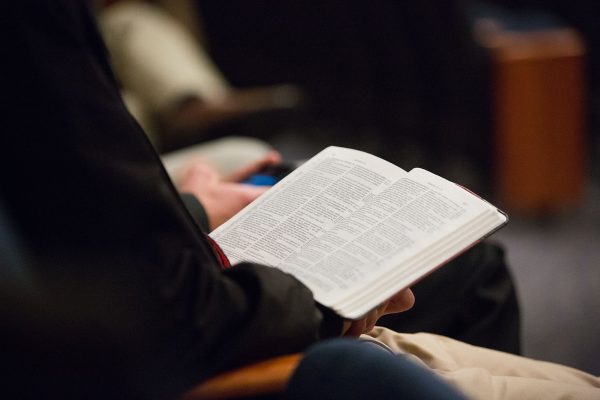When gratitude dies on the altar of a man’s heart, that man is well-nigh hopeless. — Dr. Bob Jones Sr.
Dr. Bob Sr. had a way of stating his thoughts with a note of finality, a pithy mode of expression poignant for both the listener and the reader. Though I never actually heard him preach in person, I have read his sermons. And like all BJU students past and present, I have read his famous chapel sayings where they hang in the classrooms.
In my opinion, if ever one of those sayings had a haunting quality, it is the one above. Though I mull it over somewhat analytically here, it has worked me over many times before today. Many times I’ve labored through a day, conscience-stricken over the barrenness of my own ungrateful heart. I think, “What is wrong with me? How can I be so lacking in appreciation for all that God has done for me?”
This chapel saying has often caused me to face myself and confess my bitter, complaining spirit at the throne of my long-suffering God. Sometimes I find myself trying to keep a smile and a cheerful disposition while seething with anger and frustration over what I felt was an injustice or something I thought was an unforgivable oversight or an unmet expectation. Looking back, I’m not proud of those moments. But having them has sobered me to the importance of true thanksgiving of heart all the time, as has Dr. Bob’s view that a man who is ungrateful is “well-nigh hopeless.”
But why would Dr. Bob conclude that a man without gratitude is a person who is “well-nigh hopeless”? Isn’t that a little extreme, really?
Well, the answer to those questions is the answer to another deeper question. What makes a man ungrateful? It is the answer to this question which plumbs the depths of the hopelessness of the ingrate.
People who lack gratitude are selfish
An ungrateful man thinks he is better than he is. And for that reason he deserves for everything to always go just as he prefers it. There is a sense of entitlement in him which says, “I have a right to have what I want, the way I want it, when I want it. Or I will just refuse to be satisfied at all.”
This spirit is a veritable formula for misery in this life. A man with this attitude will find himself quickly without hope because life will not always go his way. He will find himself unable to focus on anything except what does not meet his unrealistic and unreasonable expectations. Grumbling and complaining, he is constantly disillusioned and ungrateful about his lot in life. He certainly will find little joy in what God decides he actually needs.
People who lack gratitude are greedy
Paul called this idolatry. It is the worship of acquisition. This false philosophy of life states, “The more I acquire, the happier and more grateful I will be.”
What the person wants to acquire is not the issue. He simply feels he must have more or different than what he has presently—whether that be another car, another piece of property, a better job, nicer clothing, a greater accumulation of investments, another house or even a different spouse.
The fire of gratitude on the altar of his heart lies smoldering, extinguished by this icy flood of covetousness. Rather than all he is and has being sacrificed as a sweet-smelling burnt offering to Christ and His cause, he is bent on gathering more stuff for no purpose but his own insatiable greed and illusive satisfaction.
Like all the cancers of sin in the human soul, this spirit may remain undetectable for years only to suddenly spread with a viciousness throughout the heart with deadly effect, especially when left unchecked by repentance and obedience. In the end the soul is left withered, dissatisfied and ungrateful, sure that just “a little bit more” will make him truly happy and truly thankful.
Arrogant selfishness on the one hand and greed on the other cause a person to look in all the wrong places for satisfaction in this life. This is what makes him “well-nigh hopeless.” A self-centered, self-dependent life bent on accumulation is a spiritually powerless life that lacks the grace of God. Only the humble Christian who realizes what he does not deserve but has received by the favor of God and who grasps what he really needs—the grace of God to live for the glory of God—has a life filled with overflowing satisfaction.
Rather than consider a last cause of ingratitude, these thoughts on gratitude are better ended by looking at the inverse of ingratitude—a much better and brighter view. A fuller and more discerning appreciation of what we have been given is the secret to that sense of privilege and joy which is the true essence of Christian gratitude, the spirit of all true followers of Christ.
Like me, you may be older now. But still more and more, day by day, what we have in Him—revealed through His Word, comprehended by His Spirit—ought to surprise us. So perhaps with bowed head, bended knee, brimming eyes, a humbled and full heart, we can say together with quivering lips, “Thank you, Lord, thank you”—words that are the will of God in everything (1 Thess. 5:18). When we do, our hearts become an altar, and on it burns the great spiritual offering—thanksgiving to God. And thanks be to God, we are not “well-nigh hopeless.”








